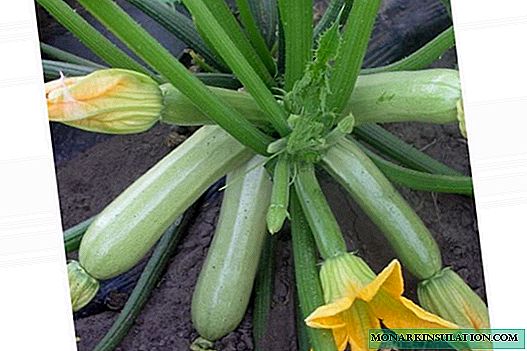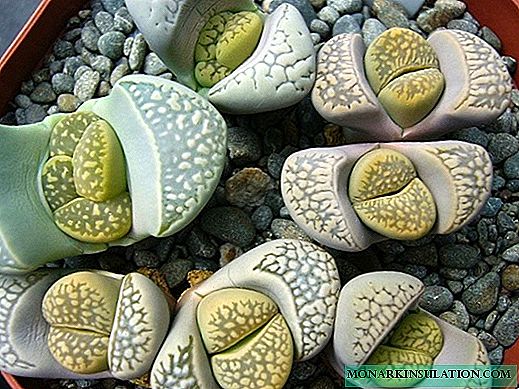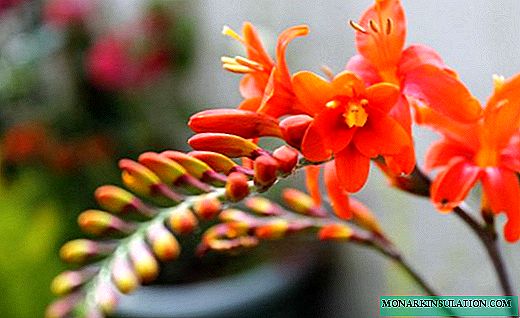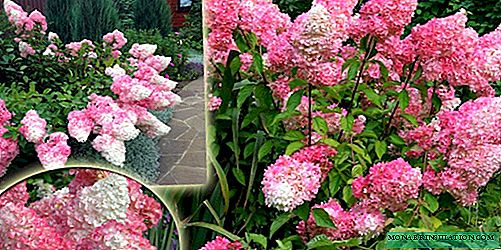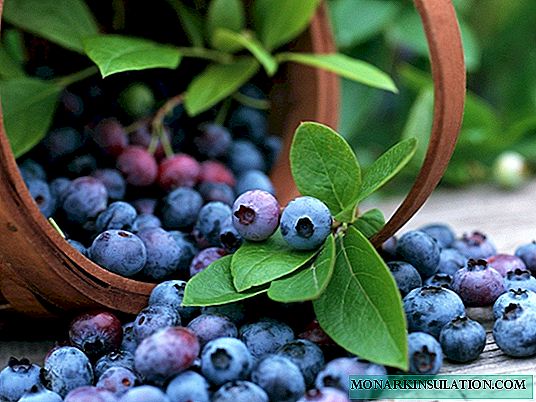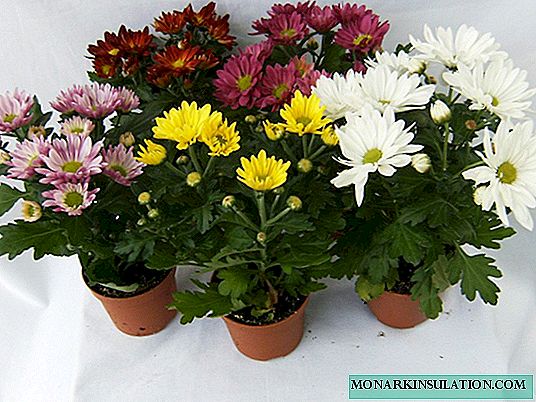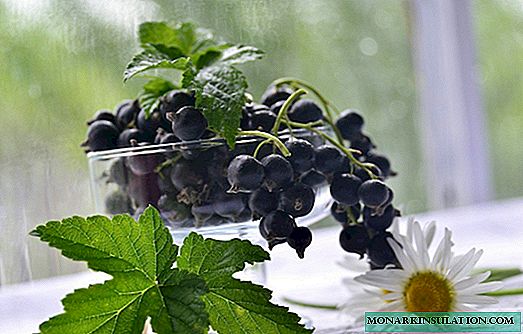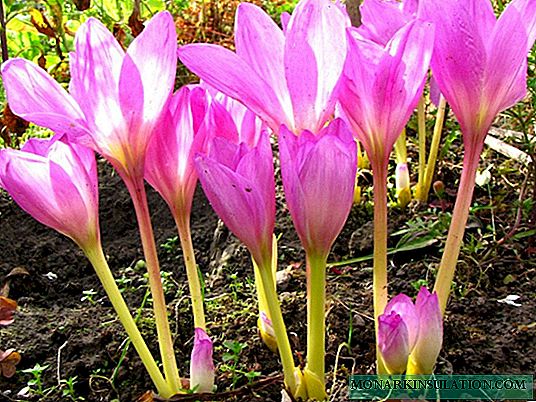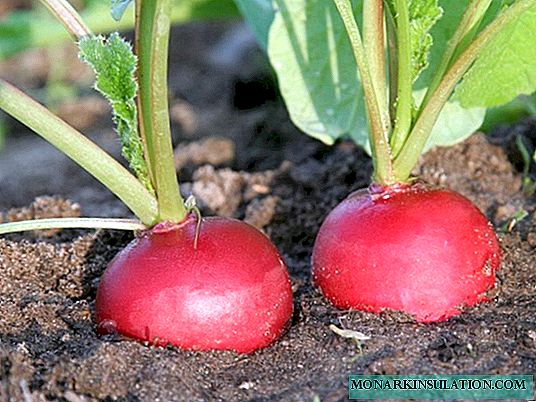Anthurium - a genus of plants in the form of epiphytes, vines, herbaceous and semi-epiphytes are part of the Aroid family.
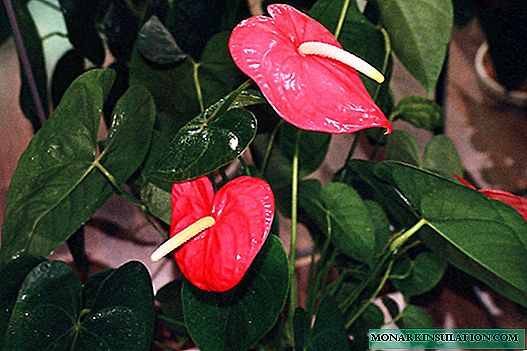
Homeland - tropical and subtropical zones of Central and South America.
Description of Anthurium
The translation of the name anthurium is a flower-tail, its inflorescence, in the form of an ears, looks like a tail. It is located on a brightly colored bract (bedspread), which is often mistaken for a flower, but in reality it is a leaf that attracts insects for pollination. Another feature is the various smells that appear at any time of the day, from mild and aromatic to intense and smelly, based on the preferences of pollinators (wasps are pleasant, flies are offensive).
Anthurium received two more names: a flamingo flower and a symbol of male happiness. The first, because of the cob with a veil resembling this bird, the second - according to popular superstitions.
Varieties of Home Anthurium
In indoor conditions, as a rule, epiphytes are grown.

The most common anthuriums with colorful bedspreads:
| View | Description | Flowers | Cover |
| Andre | The first is cultivated. It differs year-round flowering. | Red, white, purple, pink, maroon. | Bright, pointed, after flowering becomes green. |
| Dakota | Most popular. It can reach 1 m. | Solar. | Purple. |
| Scherzer | Petioles are small. | Yellow, scarlet, snow-white. | Rounded, in the form of a heart, orange, red, white shades with dots. |
Valued for decorative leaves:
| View | Description | Leaves |
| Crystal | Decorative, with a soft flowering, pleasantly smelling. | Heart shape, with bright expressive vein patterns. |
| Multi-dissected | Stunted vine. | Narrow, dark green glossy, similar to long fingers. |

With a varied bedspread.
| View | Cover |
| Blush, Tennessee, Lady Love | Pink. |
| Dark Red Anthurium, Otazu Brown, Black queen | Dark red hues. |
| Midori | Green |
| White, White Heart | White. |
| Picasso lemona | Yellow. |
| Obake, Mauna Loa Obake, Rainbow Obake | Two-tone. |

Conditions for growing and caring for anthurium
In order for the plant to feel comfortable, observe maintenance regimes.
| Factor | Spring Summer | Autumn winter |
| Location | East, west window. Access to fresh air without drafts. | South-facing windows isolated from cold air currents. |
| Lighting | Diffused bright light. | |
| Temperature | Optimal + 28 ° C. | + 16 ... +18 ° C. |
| Humidity | Maintain high:
| |
| Watering | As the top layer of the soil dries up, when the leaves slightly wilt. Humidify all the soil in the pot, drain the water from the pan immediately. Use only standing room temperature. | |
| Top dressing | Once every 1-2 weeks, fertilizers for flowering, depending on the condition. | Refuse or once a month half the dose. |

How and why to transplant and rejuvenate anthurium
After acquiring a flower, for two weeks it undergoes adaptation to room conditions. After which, regardless of the time of year, it needs to be transplanted:
- The plant is removed from the old tank without shaking off the soil, they are transshipped into a larger pot, observing the same planting depth.
- The volume of the new shelter should be 2-3 cm larger than the root system in depth and width.
- The composition of the soil: sheet soil, peat, vermiculite or perlite, sand (1: 1: 1: 0.5) or only sphagnum moss without additives.
- Drainage - pieces of bark, charcoal.
Next, the flower is transplanted annually in the spring. As the plants grow, they are rejuvenated, separating the children from the mother bush, planting them in different pots.
If young shoots do not form for a long time, they cut the entire trunk, almost at ground level. Such pruning stimulates root formation, and the appearance of new processes.
Anthurium flowering and its absence
Anthurium blooms can be year-round. But there are situations that lead to the drying of flowers:
- the plant grows old - pruned along with the peduncle;
- pollination by insects, tying berries - seed ripening is waiting or cut.
In the middle lane, due to less light and lowering the temperature on the windowsill in the winter, anthurium can slow down its growth, in this case, there are two possible options:
- They create a period of rest - observe the maintenance rules for the winter period, the main thing is not to allow the temperature to drop below +15 ° C.
- They support the active phase (flowering and growth) - they are placed away from the window, where it is warmer, they are illuminated with phytolamps, and watering and feeding are observed.
Sometimes flowering does not occur. There are several reasons for this:
- Failure to comply with proper care conditions: lack of light, low temperature, dry air, excess or lack of watering, lack of fertilizer.
- Too large capacity - the plant gives strength to build roots and leaves.
- A small pot - lacking a nutritional factor.
- Fertilizing with the wrong fertilizers - phosphorus, potassium, trace elements and fewer nitrogen compounds are needed.
- Frequent flower movement, stressful situations.
- Inaccurate transplant, the plant is damaged.
How to propagate anthurium
Obtaining new plants is possible for children, dividing the bush, cuttings, seeds.

The first two methods are used in the spring with an annual transplant. The roots are separated with a sharp knife, dusting the places of the slices with powdered coal. Transplanted plants are watered gently, trying not to flood.
Cuttings are carried out after trimming:
- Cuttings are placed in a container with perlite and sand.
- Cover with a glass cap.
- Contain at + 22 ... +24 ° C, constantly moisturize and ventilate.
Seed propagation is mainly used by breeders to breed new varieties.

At home, this is a long and complicated method:
- Self-pollinate the flower (using a brush, pollen from the stamens is transferred to the stigmas of the pistils).
- Berries ripen (8 months).
- Seeds are taken out of them, washed.
- Sown in containers with a light substrate and a thin layer of perlite.
- Take care further, as well as when cutting. As they grow, seedlings dive into larger pots.
- A plant grown in this way may bloom weakly in the second year; full flowering will come only after 4-5 years.
Growing problems, diseases and pests of anthurium
With improper care, the plant may become ill and be attacked by pests. As a rule, this can be noticed by leaf disease.
Symptoms Manifestations on the leaves | Problem | Elimination |
| Rounded brown, yellow spots, the appearance of holes. | Anthracnose, Septoria | Damaged leaves are destroyed, the roots are disinfected, the earth is replaced. The plant is placed in a place with reduced humidity, reduce watering, do not spray. With severe infection, Fitosporin, Fundazole, Silk are used (2-3 times in 2 weeks). |
The roots are rotten. Loss of gloss, pallor, then blackening. | Root rot | Cut off the affected parts. It is treated with Fitosporin, Maxim. Transplanted into new soil and pot. |
| Twisting, fading, the appearance of white plaque. | Powdery mildew | Placed in a warmer place. Sprayed with drugs: Topaz, Acrobat. |
| Dark red spots below, light above, wilting. | Rust | Use Topaz, Ordan. |
| Yellowing, sticky coating, green insects are visible. | Aphid | The soil is covered with a film, the leaves are washed with a soap solution. It is treated with onion infusion or with Fitoverm. Complex cases - Actellik, Karbofos. |
| Inside there are black spots, blurry yellow-green stains, drying, falling off. | Thrips | Spray with Fitoverm (3-4 times in a week). |
| Thickenings are white-golden. | Shield | Collect insects. Apply a garlic solution with soap, if it does not help, wipe it with kerosene. |
| The appearance of yellow dots, cobwebs. Drying, twisting. | Spider mite | Use Fitoverm. |
| White coating on sore spots. | Mealybug | It is washed with a soap solution, then after a week they are repeated several times, and also sprayed with garlic infusion or Fitoverm. |
Mr. Summer resident informs: Anthurium - male happiness
According to legend, anthurium is a flower-amulet of a young family. He is presented at the wedding, reminding the man that he is the protector of the family.
If the anthurium begins to bloom, this indicates the onset of a favorable streak for the family. It is necessary to have it for very emotional couples, it takes away negative energy and brings reconciliation to the house.
The plant also helps melancholy, nervous people. It is given to women who seek to get married.
For a family, spathiphyllum is acquired in pair with anthurium. This flower is called female happiness, along with male happiness - anthurium, they provide harmony.

